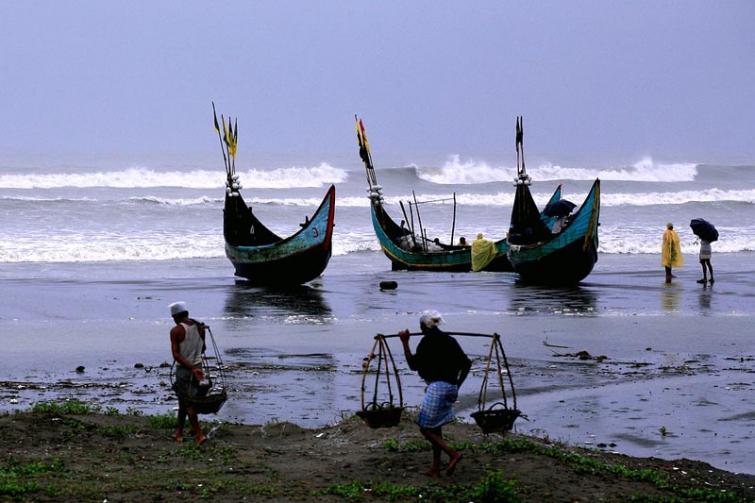
Bangladesh: $100 million World Bank financing for safe water and sanitation in municipalities
Dhaka/IBNS: The government of Bangladesh on Wednesday signed a $100 million financing agreement with the World Bank to ensure improved water supply, sanitation, and drainage system in selected 30 municipalities, benefiting about 600,000 people.
The Municipal Water Supply and Sanitation Project will provide safe piped water to residents of selected municipalities that currently do not have piped water facilities. The project will facilitate public private partnerships and help build infrastructures, including water treatment facility, water storage, transmission and distribution pipe network, house connections, including meters, as well as improved sanitation facilities in low income areas and slums.
“Today, more and more people are living in cities, creating an urgent demand for quality urban infrastructures, including water and sanitation services,” said Mercy Tembon, World Bank Country Director for Bangladesh and Bhutan. “This project will help the people living in small towns, including the slum dwellers get piped water and improved sanitation and drainage services. With greater access to clean water, the women will have more time otherwise spent for collecting water, as well the health of their children will improve resulting in better school attendance.”
The project will help construct public toilets. It will invest in septage management and disposal, as well as provide training to cleaning workers in fecal sludge management. It will also identify and mitigate measures for critical areas prone to flooding.
“In the Sector Development Plan and the National Strategy for Water Supply and Sanitation, the government has aimed for 85 to 90 percent piped water supply coverage in municipalities by 2025,” said Monowar Ahmed, Secretary, Economic Relations Division, Government of Bangladesh. “The project will help the municipalities have greater capacity to manage and deliver water and sanitation services.”
To facilitate citizen’s feedback, the project will develop mobile apps IT enabled complaint redressal systems and annual citizen surveys.
The agreement was signed by Monowar Ahmed and Mercy Tembon on behalf of the government of Bangladesh and the World Bank, respectively, at the Economic Relations Division.
The credit is from the World Bank’s International Development Association (IDA), has a 30-year term, including a five-year grace period, and carries a service charge of 0.75 percent and an interest of 1.25 percent. The project also includes $100 million financing from the Asian Infrastructure Investment Bank (AIIB) and $9.53 million financing from the government of Bangladesh.
The World Bank is among the first development partners to support Bangladesh following its Independence. Bangladesh currently has the largest IDA program totaling $12.15 billion. Since independence, the World Bank has committed more than $30 billion in grants, interest-free, and concessional credits to the country.
Image: Pixabay
Support Our Journalism
We cannot do without you.. your contribution supports unbiased journalism
IBNS is not driven by any ism- not wokeism, not racism, not skewed secularism, not hyper right-wing or left liberal ideals, nor by any hardline religious beliefs or hyper nationalism. We want to serve you good old objective news, as they are. We do not judge or preach. We let people decide for themselves. We only try to present factual and well-sourced news.







